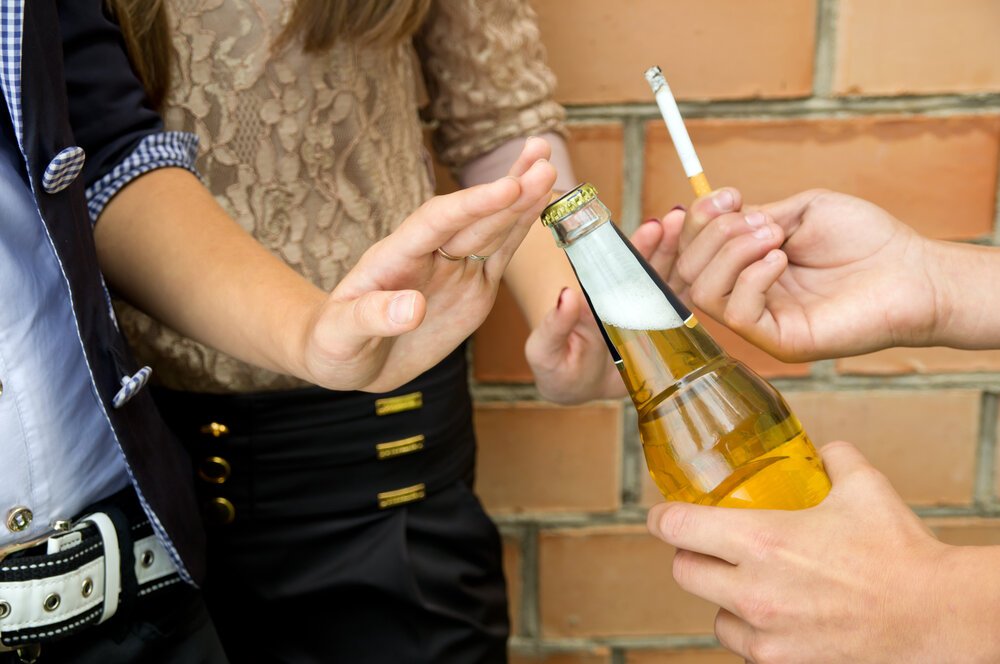
#1 Know that Youth Substance Use is Not Inevitable
Most Teens are Making One Choice NOT to Use any Substances.
There are many misperceptions about the prevalence of teen drug use. Many people, including parents and caregivers, teachers, and teens themselves, mistakenly believe that it is inevitable that teens will “experiment” with drugs. The truth is that most young people do not use substances.
Most high school seniors (60.6%) have NOT used any alcohol, marijuana/THC, nicotine, vaped, or used other drugs in the past month
This is made up of the nearly one third (35.5%) of all high school seniors who have NEVER used any substances in their lifetime and an additional 25% who have chosen not to use in the past 30 days (see graph below)
Parents/caregivers and other caring adults should find ways to support these kids who are making this One Choice not to use substances for their health
National representative data from the Monitoring the Future survey.
Consider your own high school experience. In what year were you a senior?
Contrast those figures to today's teens, many of whom are not using any substances.
The Hypocracy Conundrum
Parents may be reluctant to set clear guidelines for no substance use for their children and teens because of their own past use. Just like the research behind other health standards -- seat belts, bicycle helmets, sunscreen -- has changed behaviors, research has increased our understanding of the connections between youth substance use, mental health, and the developing brain. An expectation of no substance use by youth is appropriate because a developing brain is much more vulnerable to substance use than a mature brain.
Since the late 1970s, significant declines have been seen in the percentage of youth who use alcohol and cigarettes. Use of illicit drugs other than marijuana has remained relatively low after an initial significant decline in the early 1980s.
After peaking in 1978, marijuana use by youth declined until 1992. Marijuana stands apart from other substances because its use has increased while rates of other substances have decreased
Past Month Substance Use by High School Seniors, 1976-2024 Monitoring the Future
Parent Influence Matters
When it comes to youth drug prevention, research tells us that parents make a difference. Teens who believe that their parents will respond negatively to their drug use are less likely to use alcohol, nicotine, marijuana, and other drugs. While other factors, like peers who use drugs, can influence a teen’s decisions, parent expectations of drug use and enforcement of drug-free rules significantly reduce teen drug use. Talk to your children about drugs, making sure that they know that no drug use is acceptable.
A Message For Parents And Caregivers From Teens
"Marijuana and alcohol may be legal but they're not safe for kids..."
Reducing Youth Access To Substances Reduces Youth Use
Parents who allow kids to drink generally don’t consider:
- the mental health and substance use histories of their children or their children’s friends
- the civil and criminal consequences of providing alcohol or other drugs to underage youth
Use The One Choice Tri-Fold To Share This Data With Your Community
Helpful Online Links
1
Know that Youth Substance Use is Not Inevitable
2
Be Brain Development Savvy
3
Be Substance Savvy
4
Talk Early and Talk Often
5
Act Quickly If You Suspect Use
Like what you see? Support Our Work!
Support the One Choice prevention initiative of the Institute for Behavior and Health, Inc., a 501(c)3 non-profit organization, with a tax-deductible donation.








